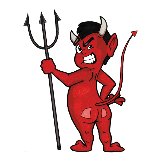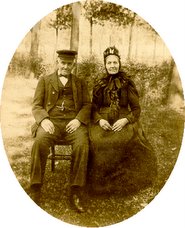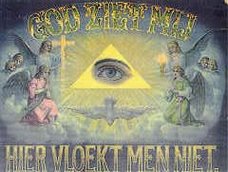More and more frequently I am "blessed" with sleepless hours in the early morning. Last night, during one of those spells, I watched "Changing lives" on BBC 2. I missed the start but was soon captured and kept watching until, somewhere during the twentieth century, I finally fell asleep again.
The (apparently) old series consists in very short chapters but is rich in ideas and insights. It did not answer the question how our ancestors lived their detailed day to day life - a question I ask myself many a time - but it helped me to see things I never saw before or never thought about.
For instance it explained the link between the Black Death, the freedom of serfs and the rise of England's wool industry. A very significant part of the English population died during the first episode of pestilence between 1348 and 1350. Some 30 to 40 % of the population of England died.
There was an immense shortage of manpower which gave the serfs some negotiating power. Within decades serfdom had disappeared. (I seem to remember, but didn't try to check the point, that serfdom almost disappeared in Western Europe in the thirteenth century). And as there was not enough manpower to work the fields, and much less demand for their produce, sheep and wool replace crops.
Interesting.
But the constant fact in the series was that greed was the main, if not the only motor for development all through history. There is of course some profound truth in that. But does that mean we have to remain greed dominated and motivated creatures for ever and ever ? And have the consequences of greed ever been so earth shattering as the are now ?
I don't think so. Because if greed continues unabated, we cannot ever be really civilised.
Subscribe to:
Post Comments (Atom)







No comments:
Post a Comment